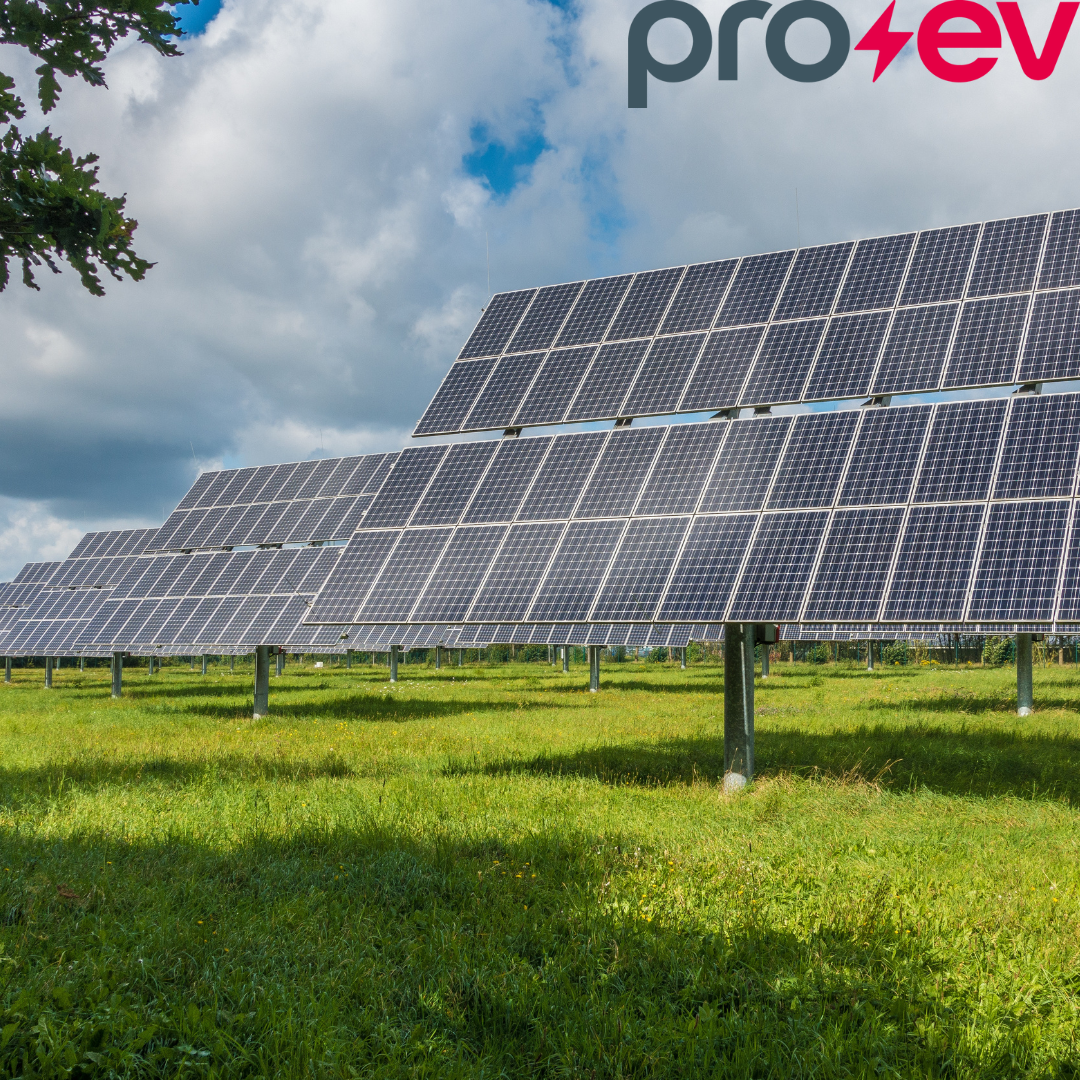Date:
03rd April 2023
It is commonly known that electric cars produce fewer carbon emissions than diesel and petrol cars, as well as being much less expensive to run.
If you want to go a step further, and have your car produce zero carbon emissions and charge for free – using solar energy to power your EV is the way to go.
If you already have a solar panel system installed, then using them to charge your car is a no brainer – we’ll give you the tips on how to get started. If you haven’t yet installed solar panels, then this guide aims to answer all the questions you may have and costs to help in making your decision.
To charge your electric car using solar power you’ll need a solar Photovoltaic (PV) system and a solar compatible EV charger.
The solar PV system (commonly known as a solar panel system), converts the energy from the sun into electricity that can be used to charge your EV as well as power appliances in your home.
Solar compatible chargers are able to use solar generated electricity first before it is used to power your house. EV chargers that are not compatible with solar panels can technically use solar energy, however it is only able to consume this after your home has taken all the power it needs – which rarely leaves any left to charge your car.
To work out how many solar panels you’d need to charge your EV, you’ll firstly need to understand how many kilowatts of energy you’ll be adding to your car each day.
If you’ve owned your EV for a while and are regularly charging, you may already have an idea of this. Otherwise, you work this out be looking at the efficiency of your car – for the purpose of this guide we’ll use the number of kilowatt hours it takes to go per mile – and multiplying this by the distance (no. of miles) you’ll need to travel per day.
For example, if you take the Nissan LEAF, which requires 0.332 kWh of energy per mile (332 wh/mi) and you travel the average 35 miles a day, then your solar panel system will need to generate 11.6 kWh of electricity per day to meet your charging needs.
The average solar panel in the UK produces 250 – 400 watts of energy per sunlight hour, depending on it’s size. So if you receive 4 hours of sunlight a day, then you’ll need 7 – 12 solar panels to charge the Nissan Leaf above.
If you also want to use solar panels to power the appliances in your home – then you’ll also need to add this on too.
In general solar energy can only be used at the time it is generated, with any surplus energy being sold back to the grid. This means you’ll need to charge your car during the day during sunlight hours. (NB. Solar power is generated via UV rays, and so it does not need to be a sunny day to produce energy).
If you use your car during the day, and want to charge in the evening it is still possible to charge using solar power, however you’ll also need to purchase a solar storage battery in order to store your solar energy to be used later.
The rates for selling your electricity back to the grid tends to be lower than the price of electricity – and so it would generally be more cost effective if you were to use the energy and so the storage battery can be useful.
Prices for storage batteries vary depending on how much energy it can store – a 3kWh storage battery can be bought from c.£1,000.
If you don’t already have solar panels installed, then the cost of installing them is definitely worth considering before switching to solar.
The price of solar panels varies depending on the size of your system. For the 3kWh panel system above, it would cost an average of £5,000 and £6,000. This does mean that it would take around four years to break even on costs, when compared to charging on the new ofgem price cap rate of 30p per kWh. Or five years if purchasing a solar storage battery too.
If you’re planning on moving home within that time then it may not be worth purchasing yet. However once you’ve broken even, you may end up paying nothing for your electricity or charging costs indefinitely.
 Back to news
Back to news


